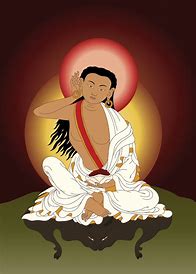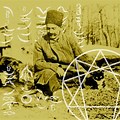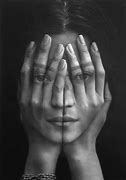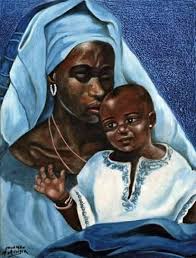No race or religion can prevent coronavirus — don’t fall for these hoaxes
No race or religion can prevent coronavirus — don’t fall for these hoaxes
Let’s make it very clear: There is no scientific data to support claims that a certain race or religion makes you stronger or weaker against coronavirus 2019.
So if you see a post on Facebook or Instagram, a video on YouTube, a message chain of WhatsApp or Line, or a tweet with that kind of “fact,” consider yourself in front of false information.
All races are equally likely to be infected. The same goes for Christians, Jews, Muslims, Buddhists, Hinduists and those who believe in all other religions. They are equally protected — or unprotected — against the disease that has already killed more than 2,700 people.
The alert becomes vital these days because the #CoronaVirusFacts / #DatosCoronaVirus alliance, which brings together 90 fact-checkers from 39 countries under the coordination of the International Fact-Checking Network, has identified a series of falsehoods with this profile.
Among the 558 fact-checks already published by the project, there are several that try to demonstrate that race and religion do not influence the likelihood of contamination. This means that false news producers are working hard in the opposite way.
On Feb. 19, for example, fact-checkers from Taiwan Fact-Check Center found viral claims on Facebook and Line about a scientific study that “proved” how East Asians were more likely to become infected with the new coronavirus than other Asians because they have four to five times more ACE-2 receptors. That is false. The study was published in 2005 and referred to the Severe Syndrome Acute Respiratory (SARS) -— not COVID-19.
Fact-checkers from Dubawa in Nigeria published an article demonstrating that there is no scientific evidence that black skin and/or blood aren’t resistant to the coronavirus 2019. In Nigeria, Twitter was filled with the “information” that subsaharianos (those living in the areas of Africa below the Sahara Desert) had been blessed and that they would be strong enough to face the new disease. False, too. In its fact-check, Dubawa makes it clear that the World Health Organization says that anyone can get the coronavirus if they approach another contaminated person.
False news about religion has also demanded fact-checkers’ attention. Religion is not a way to protect yourself against the new disease.
In three countries — India, Sri Lanka and Indonesia — social media platforms hosted various videos allegedly showing Chinese or Asian people converting to Islam after “realizing that Muslims were not being infected with the coronavirus 2019.” False.
Videos verified by Newschecker.in in India, Fact Crescendo in Sri Lanka, and Tempo and AFP in Indonesia are edited versions of the same recording made in Saudi Arabia in May 2019 — seven months before the start of the coronavirus outbreak. And Muslims are getting infected.
But in countries with large Muslim populations, this kind of content gains traction and spreads fast — something that concerns not only fact-checkers but also health authorities.
These beliefs can keep infected people away from real treatment, and those who are at risk of contamination far from preventative measures, promoting real harm.
The Centers for Disease Control and Prevention, in the United States says that anyone can be infected with the coronavirus 2019. Those who want to avoid the disease should not approach another contaminated person should not have contact with their saliva, cough or mucus; and should not share objects or surfaces.
Race or religion have no influence.
Reference:
* Cristina Tardáguila is the associate director of the International Fact-Checking Network and the founder of Agência Lupa. She can be reached at This email address is being protected from spambots. You need JavaScript enabled to view it..
Clearing The Atmosphere- Heavenly Fragrance




Clearing The Atmosphere- Heavenly Fragrance
Rooms can have a different atmosphere which cannot always be attributed to such things as decor, light, ceiling height, or even good or bad feng shui- the flow of Ch'i energy around the home depending on its location and the placement of doors, windows, furniture, mirrors and plants, among other things. Rooms also have an aroma which reflect all that is contained, and goes on, in them, including such activities as cooking: the aroma of things such as furnishings; and the presence of living beings such as people, animals and plants.
Humidity can change an atmosphere, and the aroma of mildew can these days be treated with various commercial products and appliances, while the dryness of central heating can be counterbalanced with humidifiers. All these are things we should bear in mind when considering the atmosphere of a room or home. Another factor is cleanliness. If a place doesn't feel conductive to good energy flow it may simply need a good clean. We're not talking abot untidiness here, but uncleanliness, the solution to which is obvious.
- Another method involves using salt water in a bowl, wetting the fingers and flicking the water in all directions, being careful not to damage certain fabrics and furniture. Essential oils can be added to this water mix. Avery ancient method is to dip a small bundle of fresh herbs into salt water, shake off the excess, and use this to fick the water around the room. Some cultures use a small branch of a tree, or you could use a single flower.
The spiritual house-cleansing process can be done while diffusing your favourite essential oils. Some people pray while cleansing; others use loud noise which has often been used to scare negative elements away. This can be done in the traditional way, with drums, bells, rattles, gongs, clapping or chanting, although I know people who prefer loud music, as they feel this is very effective in getting the energy up and moving.
When the atmosphere feels lightened, use one of the following cleansing blends of essential oils-or an essential oil blend of your choice - in a diffuser, plant mister, or simply in a bowl or mug of steaming water. Put on some tranquil music, light a candle, then have a cleansing bath - suggestions for which are in a later section. Finally, put some new life and happiness in the room or rooms in the form of plants and flowers.
Reference: The Fragrant Heavens: Valerie Ann Worwood
The Beneficent Home




The Beneficent Home
Our home should be an oasis of peace, or at least a place where we feel 'at home' with ourselves: centred and complete, healthy, creative and joyful. Most of the time this may be the case, but if we're burgled, the house just feels 'dirty' - even, as one person told me, when a cat-burglar silently went through the place wearing thick gloves and disturbing nothing but the safe. The initial reaction after such a violation is often, ' It doesn't feel like it's my place any more; I want to move now,' but this is seldom a practical possibility.
If we move home, to a place previously occupied by other people, again, the energies can feel uncomfortable. It is not only the energy of those who are present that we have to think about, but the energy of those who have passed through that particular space before. Walls, so it is said, hold the energy of people who occupied that room in former times. The love and joy - or fear, anger and pain - somehow get imprinted in the very fabric of the building.
Whether this is the case or not, it is certainly true that walls hold ancient aromas, as has been discovered by workers for commercial dehumidifier firms who have smelt the aroma of incense burnt long ago emanating from the walls of churches during treatment. Aroma is tangible compared to love, fear and thought, but all have a vibration and energy that can linger.
Healers who work within the auric fields of people -the energy field around the body of a person - feel that field, in some cases, as sticky. This same, grey, etheric quagmire quality can suffuse a home, or a room in it, and can be felt by sensitive people and animals. It's variously described as 'thick', ' heavy' and 'dim'.
After a burglary, or when moving into a new place, it's very appropriate to perform a spiritual cleansing, but even invited visitors to our home can often leave their vibrational imprint behind. If they are full of sadness or misery , or the kind of people who radiate negativity or soak up positivity, that can be a real burden on the energy of the premises (as well as on us).
They leave feeling replenished, but you and the house feel depleted - and it may be time to work on the energy of both you and the place. When a building holds energies which are having a detrimental effect, they can be expressed as, perhaps, the feeling that the place is never really clean (despite the fact that, to look and touch, it is clean), and wanting to clean it over and over again; or, conversely, as the feeling that you don't want to clean, touch or disturb anything: a general feeling of discomfiture; always wanting to rearrange furniture; or simply, being depressed as soon as you open the door.
The energies in a home can also account for physical sensations: feeling tired all the time; getting headaches; or feeling pressure on the head. Clearly, these things could also be symptoms of some physical disorder, and before considering the energetic quality of a home as the cause, put on your coat and get down to the doctor for a check-up. Obviously too, arguments in a home may account for an atmosphere of disquiet; and electromagnetic fields generated by electrical pylons, for example, have been said to account for the symptoms listed above.
Reference: The Fragrant Heavens: Valerie Ann Worwood
Fragrant Clouds of Purity and Protection - 2




Fragrant Clouds of Purity and Protection - 2
Many of the incense ingredients used throughout history and today are healing agents - myrrh, frankincense, cinnamon, clove , hyssop, sage, cedarwood, juniper, cypress and pine, amongst others. No wonder then, that incense, and fragranced ointments and salves which may well have conferred health, should be seen as 'protective' - a beneficent agent of the deity - and this was especially the case when it was thought that physical health was inextricably linked to spiritual health.
The unfortunate Europeans who suffered during the plagues of the fourteenth to seventeenth centuries must have been sure they had in some way transgressed when they read this in the Old Testament: If thou wilt diligently hearken to the voice of the Lord thy God, and wilth do that which is right in his sight, and wilt give ear to his commandments, and keep all his statues, I will put none of these diseases upon thee, which I have brought upon the Egyptians: for I am the Lord that healeth thee.'
The agents for healing at this time, these people's saving grace came in the form of fragrances and perfumers. Fragrant materials became highly sought after, especially rosemary, cloves, garlic, rue, melissa, rose, lavender and juniper, and were vital protection when gathering with other people, in church for example. Around 1700, Daniel Defoe described one such scene in London: 'the whole church was like a smelling bottle; in one corner it was all perfumes; in another aromatics, balsamics, and in a variety of drugs and herbs; in another salts and spiritus.'
In 1646 France, Arnaud Baric gave a full description of the role played by perfumers who, under the lead of 'the health captain', went through houses fumigating them with perfume burnt on coal fires. At the end of the long day, the perfumers were themselves cleansed by standing in the 'steaming room' - a cloth tent with perfume material boiling away in a pot.
It is a curious thing that so many fragrant plants should be protective to the health.. It is almost as if we are invited by the creative force of the universe to examine them, taste them, put them in our food, enjoy their aroma, and in other ways make use of them. The healing properties of many fragrant plants were of course well known in ancient times, which may account for the wide spread practice of aromatically cleansing strangers or guests before allowing them into the village or house.
A hundred years ago in central Borneo, Blu-u kayans burnt bundles of fragrant plehiding bark when strangers arrived, to drive away any accompanying 'evil spirits'. In Turkey, Afghanistan and Persia visiting guests were first cleansed by burning branches of fragrant plants or incense, while aboriginal Australians saved their hosts the trouble and came with their own lighted bark or fragrant burning sticks.
As well as fragrance, fire and loud noise have been widely employed, as J.G. Frazer put it in The Golden Bough, 'for the purpose of disarming the strangers of their magical powers, of counteracting the baneful influence which is believed to emanate from them, or of disinfecting, so to speak, the tainted atmosphere by which they are supposed to be surrounded'.
In the contemporary world, the practice of aromatic cleansing is still ubiquitous in the Middle East, where it is perceived as a hospitable kindness to guests. In tents in the desert, a few smaller pieces of aromatic resin may be put on the brazier, while in towns you are more likely to be greeted with rose water, sprinkled from a long-stemmed gulabdan.
Guests in Turkish households have lemon-scented cologne sprinkled on their hands, so it can be wiped on the arms and neck. This fragrant nicety is also offered by the conductor to passengers on long-distance buses. Fragrance is also widely used to cleanse buildings, especially those used for spiritual practices.
When Saladin retook the Mosque of Omar in Jerusalem from the Christians in 1187, he had it purified with rose water; and when Mohamet II captured the Church of Santa Sophia in Constantipole in 1453 and made it a mosque, it was likewise first treated with a rose. Sage is the most sacred herb of the Yuwipe Native American Nation, and it is this which covers the floor of the medicine man's house as he goes about the purification process.
Fragrance and spirituality have always been inextricably linked. In Mesopotamia 4,000 years ago, incense was used both to attract the goddesses and gods, and to repel malevolent spirits. In Muslim terminology, jinn are said to be an order of spirits which can assume human and animal form and exercise negative influences over people, and pirs are people brought in deal with them - often incorporating the inhalation of jasmine oil as part of the proceedings.
Reference: The Fragrant Heavens: Valerie Ann Worwood
Articles-Latest
- Koran burning conviction sparks fury as blasphemy law 'returns to UK'
- Robert Francis Prevost - Pope Leo XIV
- Pope Francis' death follows recent health challenges. Here's what we know about how he died.
- Easter April 2025 - international Celebrations
- The Rule of the twelve psalms -Worthy is the Lamb
- Religion in Africa Before Christianity and Islam
- 6 The Origin of Yahweh
- Dumo Di Milano
- What Did the Crow Tribe Believe In: Discover The Beliefs!
- 7 Reasons Historic Christianity Rejects the Book of Enoch
- 8 Breathtaking Mountain Monasteries Around the World
- Ethiopian Bible is oldest and most complete on earth
- Muhammad Muhammad was a prophet and founder of Islam.
- World Day of the Poor – SVP Christmas Campaign 2024
- Pope Francis to open 5 sacred portals on Christmas Eve — for a ritual that’s never been done before
- The 144,000 in Revelation
- Over 73 dead bodies 'used for meditation', 600 crocs in a pond, found in two Thai temples
- Occultism: Western Occult Tradition
- What is a Mudra
- Blood Sacrifices: Ancient Rituals of Life and Death
Articles-Most Read
- Home
- Let There Be Light
- Plants that feel and Speak
- The Singing Forest
- The Singing Forest-2
- Introduction
- Meditation
- Using Essential Oils for Spiritual Connection
- Heaven Scent
- Plants that Feel and Speak-2
- Purification
- Making the Spiritual Connection
- Anointing
- Essential Oils: The unseen Energies
- The Sanctity of Plants
- The Aroma Of Worship-Foreward
- The Aroma Of Worship - Introduction
- Methods Of Use
- Spiritual Blending
- Handling and Storage







